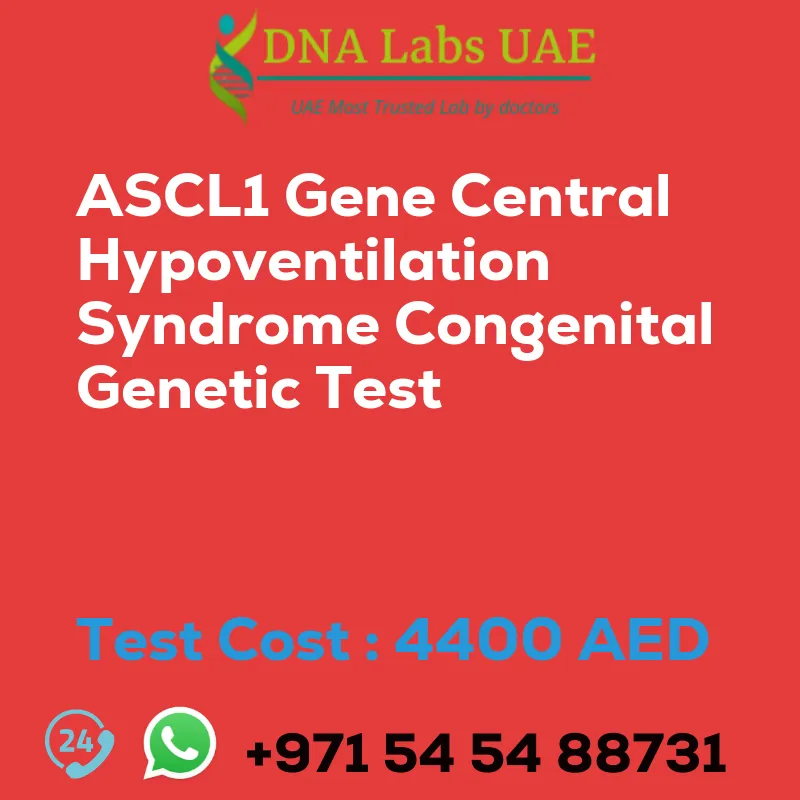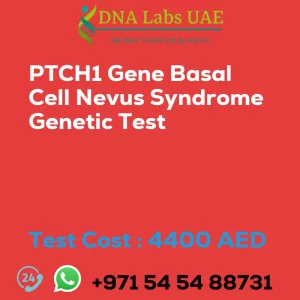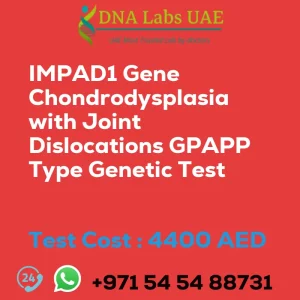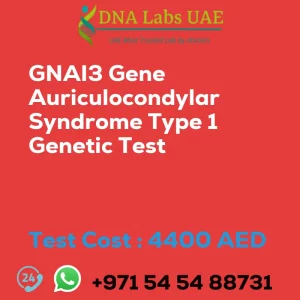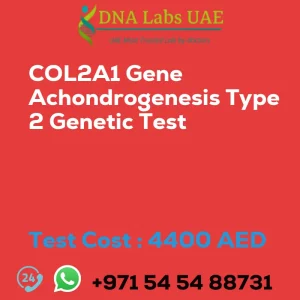ASCL1 Gene Central Hypoventilation Syndrome Congenital Genetic Test
Test Details
The ASCL1 gene, also known as achaete-scute family bHLH transcription factor 1, plays a crucial role in the development of the autonomic nervous system, including the control of breathing. Mutations in the ASCL1 gene have been associated with a rare genetic disorder called Congenital Central Hypoventilation Syndrome (CCHS).
CCHS is a condition characterized by abnormal control of breathing, particularly during sleep. Individuals with CCHS have a reduced or absent drive to breathe, leading to hypoventilation (reduced breathing) and low levels of oxygen in the blood. This can result in symptoms such as shallow breathing, difficulty waking up from sleep, and cyanosis (bluish discoloration of the skin).
Next-Generation Sequencing (NGS) genetic testing is a powerful tool used to analyze the DNA sequence of genes, including the ASCL1 gene. This type of testing allows for the identification of specific genetic mutations or variants that may be responsible for a particular disorder or condition, such as CCHS.
NGS genetic testing for ASCL1 gene mutations can help in the diagnosis of CCHS, especially in cases where the clinical presentation is atypical or when other genetic causes have been ruled out. It can also provide valuable information for genetic counseling, as it can help determine the inheritance pattern of the condition within a family.
Overall, NGS genetic testing for the ASCL1 gene can contribute to a better understanding of the genetic basis of CCHS and aid in the diagnosis and management of affected individuals.
Test Name
ASCL1 Gene Central Hypoventilation Syndrome Congenital Genetic Test
Components
- Price: 4400.0 AED
Sample Condition
Blood or Extracted DNA or One drop Blood on FTA Card
Report Delivery
3 to 4 Weeks
Method
NGS Technology
Test Type
Dysmorphology
Doctor
Pediatrics
Test Department
Genetics
Pre Test Information
Clinical History of Patient who is going for ASCL1 Gene Central Hypoventilation Syndrome, Congenital NGS Genetic DNA Test. A Genetic Counselling session to draw a pedigree chart of family members affected with ASCL1 Gene Central Hypoventilation Syndrome, Congenital NGS Genetic DNA Test gene ASCL1
| Test Name | ASCL1 Gene Central hypoventilation syndrome congenital Genetic Test |
|---|---|
| Components | |
| Price | 4400.0 AED |
| Sample Condition | Blood or Extracted DNA or One drop Blood on FTA Card |
| Report Delivery | 3 to 4 Weeks |
| Method | NGS Technology |
| Test type | Dysmorphology |
| Doctor | Pediatrics |
| Test Department: | Genetics |
| Pre Test Information | Clinical History of Patient who is going for ASCL1 Gene Central hypoventilation syndrome, congenital NGS Genetic DNA Test. A Genetic Counselling session to draw a pedigree chart of family members affected with ASCL1 Gene Central hypoventilation syndrome, congenital NGS Genetic DNA Test gene ASCL1 |
| Test Details |
ASCL1 gene, also known as achaete-scute family bHLH transcription factor 1, is a gene that plays a crucial role in the development of the autonomic nervous system, including the control of breathing. Mutations in the ASCL1 gene have been associated with a rare genetic disorder called Congenital Central Hypoventilation Syndrome (CCHS). CCHS is a condition characterized by abnormal control of breathing, particularly during sleep. Individuals with CCHS have a reduced or absent drive to breathe, leading to hypoventilation (reduced breathing) and low levels of oxygen in the blood. This can result in symptoms such as shallow breathing, difficulty waking up from sleep, and cyanosis (bluish discoloration of the skin). Next-Generation Sequencing (NGS) genetic testing is a powerful tool used to analyze the DNA sequence of genes, including the ASCL1 gene. This type of testing allows for the identification of specific genetic mutations or variants that may be responsible for a particular disorder or condition, such as CCHS. NGS genetic testing for ASCL1 gene mutations can help in the diagnosis of CCHS, especially in cases where the clinical presentation is atypical or when other genetic causes have been ruled out. It can also provide valuable information for genetic counseling, as it can help determine the inheritance pattern of the condition within a family. Overall, NGS genetic testing for the ASCL1 gene can contribute to a better understanding of the genetic basis of CCHS and aid in the diagnosis and management of affected individuals. |

